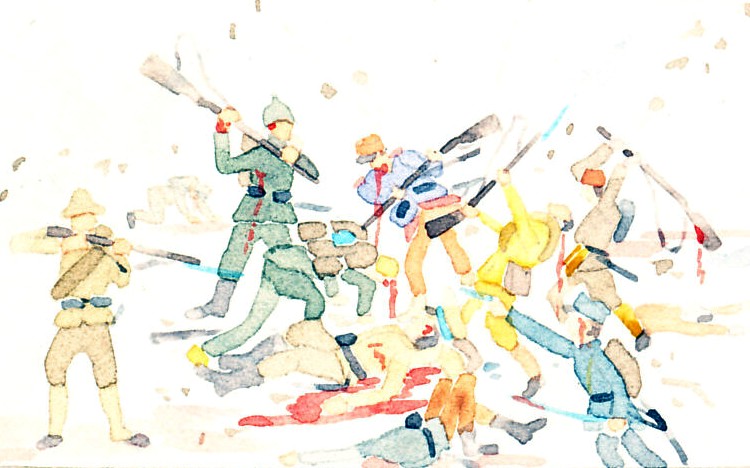Captains and sailors of the German battleships Goeben and Breslau signing up for the Turkish Navy. After shelling Allied ports and sinking Allied ships in the Mediterranean, the two ships had entered Turkish waters at the Dardanelles on August 8, 1914. Claiming the ships and their crews as Turkish allowed Turkey to maintain a veil of neutrality for a time. This was dropped on October 29 when the ships sank a Russian gunboat in the Crimean Black Sea port of Odessa. The postcard's caption compares the captain to Leonidas who died leading the Greeks at the Battle of Thermopylae in 480 during Xerxes's invasion in the Second Persian War.

Gli eroi della Goeben e della Breslau
The heroes of the Goeben and Breslau
- Desideran signori?
- Il testamento Vogliam dettar.
- Sono a' vosti comandi, Nobili cuori! All'epico cimento Leonida del mar, sarete grandi!
- Si; lo giuriam per tutti i patrii avelli: In fondo . . . scapperem ai Dardanelli.
- What do you wish, gentlemen?
- We want to dictate our wills.
- I am at your service, Noble hearts! In this epic ordeal, Leonidas of the sea, you will be great!
- Yes, we swear it on the graves of our countrymen: In the end … we will escape to the Dardanelles.
Other views:
Larger
